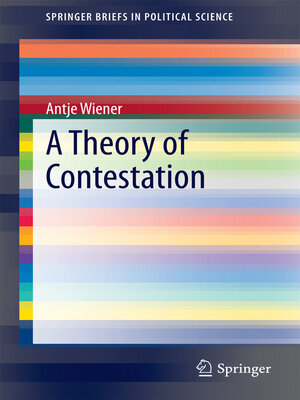
Sign up to save your library
With an OverDrive account, you can save your favorite libraries for at-a-glance information about availability. Find out more about OverDrive accounts.
Find this title in Libby, the library reading app by OverDrive.



Search for a digital library with this title
Title found at these libraries:
| Library Name | Distance |
|---|---|
| Loading... |
The Theory of Contestation advances critical norms research in international relations. It scrutinises the uses of 'contestation' in international relations theories with regard to its descriptive and normative potential. To that end, critical investigations into international relations are conducted based on three thinking tools from public philosophy and the social sciences: The normativity premise, the diversity premise and cultural cosmopolitanism. The resulting theory of contestation entails four main features, namely types of norms, modes of contestation, segments of norms and the cycle of contestation. The theory distinguishes between the principle of contestedness and the practice of contestation and argues that, if contestedness is accepted as a meta-organising principle of global governance, regular access to contestation for all involved stakeholders will enhance legitimate governance in the global realm.







